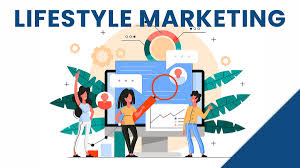As we move further into 2025, lifestyle marketing continues to evolve, offering new opportunities for brands to connect with their audience in deeper, more personal ways. As a lifestyle marketing agency, we’re always keeping an eye on emerging trends that can help brands stand out in an increasingly crowded space. It’s no longer just about selling products—it’s about creating experiences, building authentic relationships, and tapping into the ever-changing needs and desires of the consumer.
1. The Rise of Hyper-Personalisation
Consumers are increasingly expecting brands to understand them on a deeper level, and hyper-personalisation is the key to meeting this demand. In 2025, lifestyle brands will focus on delivering tailored experiences, from customised recommendations to unique offers based on individual behaviour. Thanks to advancements in AI, brands can now collect and analyze customer data in real time, creating an experience that feels truly personal.
For example, imagine a fitness brand that not only recommends specific workouts based on your activity but also suggests complementary products like gear, snacks, or even exclusive classes—all personalised to your tastes and goals. It’s a way of showing customers you truly understand them and their needs.
2. Sustainability and Purpose-Driven Marketing
Sustainability is no longer just a buzzword—it’s a movement. Today’s consumers are more conscious than ever about the impact their choices have on the environment and society. In 2025 and beyond, lifestyle brands will need to embrace sustainability not just in their products but in their messaging as well. It’s about aligning with values that resonate deeply with your audience.
Brands that are authentic in their commitment to environmental or social causes will stand out. Whether it’s through eco-friendly packaging, ethical sourcing, or supporting social initiatives, being transparent about your efforts can help you build trust and loyalty. This trend goes beyond “greenwashing”—it’s about real change and meaningful action.
3. The Integration of Augmented Reality (AR) and Virtual Reality (VR)
Augmented Reality (AR) and Virtual Reality (VR) are quickly becoming mainstream, and in 2025, they will play a major role in the lifestyle marketing world. Brands are using AR and VR to create interactive, immersive experiences that transport consumers into a virtual world, allowing them to engage with products in ways that were once unimaginable.
Whether it’s trying on clothes virtually, touring a hotel room in 360° before booking, or experiencing an immersive product demo, these technologies help brands connect with their audience on a whole new level. By offering unique, memorable experiences, brands can increase engagement and build a more emotional connection with their customers.
4. Influencer Marketing Goes Beyond the Likes
Influencer marketing is not going anywhere. In fact, it’s evolving. In 2025, influencer marketing will shift towards a more authentic, long-term partnership model. Gone are the days of simply paying influencers to post product shots. Now, it’s about co-creating content with influencers who genuinely align with the brand’s values and mission.
Micro and nano-influencers will continue to rise in prominence, as they offer niche, highly engaged audiences that tend to have a deeper connection with the brand. This allows for more authentic storytelling and greater trust, which translates into better results.
5. Shoppable Content and Social Commerce
Social commerce is expected to explode in 2025. With more consumers turning to social media for shopping inspiration, platforms like Instagram, TikTok, and Pinterest are integrating shoppable features, making it easier than ever for consumers to purchase directly from the app. This seamless shopping experience is something lifestyle brands can’t afford to ignore.
The ability to shop instantly through social content—whether it’s a post, a video, or a story—makes the purchasing process frictionless. As a lifestyle marketing agency, we see this as a game-changer for brands looking to drive sales and build a stronger connection with their customers through content.
6. Experiential Marketing Gets a Digital Upgrade
With the rise of digital platforms, experiential marketing is no longer confined to physical events. Brands will continue to explore hybrid experiences, blending the physical and digital worlds. Virtual events, livestream shopping experiences, and interactive virtual showrooms will become the norm.
The key here is to make these experiences memorable and immersive, whether they happen online or in person. Brands that offer unique, engaging, and shareable experiences will remain top of mind for consumers, creating lasting impressions that extend well beyond a single touchpoint.
7. Video Content and the Power of Short-Form Media
As video content continues to dominate, short-form videos will lead the charge in 2025. TikTok, Instagram Reels, and YouTube Shorts have already proven that consumers love quick, bite-sized content. For lifestyle brands, this is an opportunity to create engaging, digestible content that entertains while it informs.
In a fast-paced world, short-form videos are the perfect way to grab attention and drive action. Whether it’s behind-the-scenes looks, product demos, or lifestyle inspiration, these videos provide an authentic, raw look at a brand in a way that traditional advertising can’t.
Conclusion
As a lifestyle marketing agency, we understand that keeping up with trends is crucial to staying relevant. In 2025 and beyond, it’s not just about following the latest fads—it’s about understanding consumer behaviour and crafting experiences that speak to their values, desires, and needs. By embracing hyper-personalisation, sustainability, AR/VR, influencer partnerships, social commerce, and experiential marketing, lifestyle brands can build deeper connections and create meaningful experiences for their audiences.





Comments